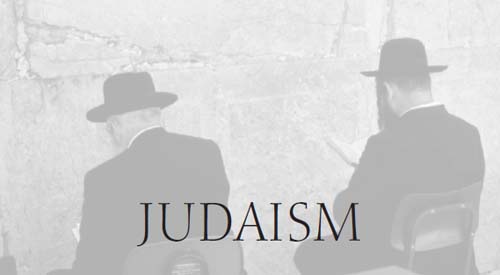JudaismHistory and Sources |
When and where did Judaism begin? Was it founded by an individual person? |
Jewish tradition traces its beginnings back nearly four thousand years. Abraham is the key figure here, not as a founder but as the first “Hebrew” to receive a revelation from God. Genesis 11-25 contain the bulk of our scriptural information about Abraham. According to tradition, God told Abraham to leave his homeland in Mesopotamia (present-day Iraq). Trusting completely in God, the patriarch agreed to travel where God would lead him. As Abraham journeyed across the central Middle East from Mesopotamia to Egypt and back to what is now southern Israel, he and his son Isaac laid the foundations of a monotheistic tradition. Abraham’s grandson Jacob sired the twelve sons who would bestow their names on the original twelve tribes. The second half of Genesis recounts their stories. But the appearance of Moses, beginning with the story of his being adopted by Pharaoh, marks another major turning point.
It is believed that Moses lived toward the end of the third quarter of the second millennium B.C.E. (about 1300 B.C.E.). His story occupies a larger portion of the Jewish scriptures than any other single figure, stretching from the beginning of Exodus to the end of Deuteronomy. From his inaugural revelation at the Burning Bush to leading the people called Israel (the name divinely given to the patriarch Jacob) on a journey that culminated at the banks of the Jordan River, Moses’ story is that of the formation of a community of faith. At the center of that formative epoch is the pivotal revelation of the Law at Sinai which takes place at about the midpoint of that journey. Sources do not record use of the word “Jew” (from the Hebrew yehudi) until many centuries after Moses’ time. Then the word referred to a member of the tribe of Judah, which in turn had given its name to the region called Judaea.

